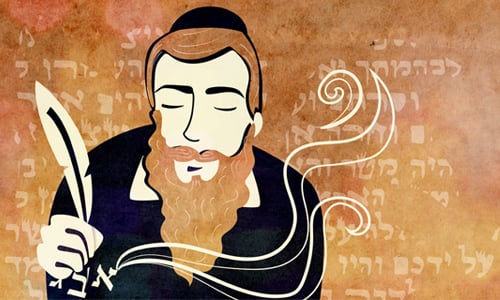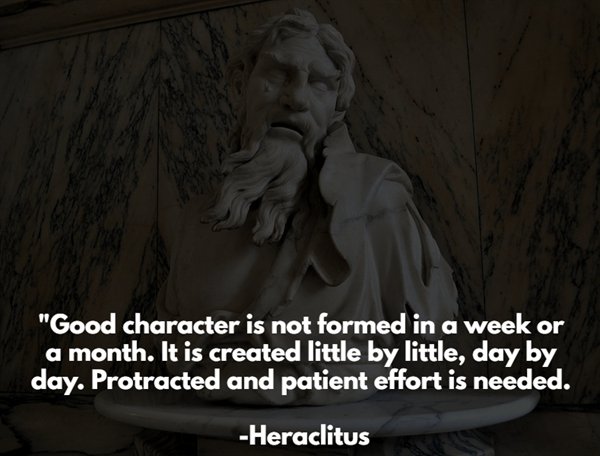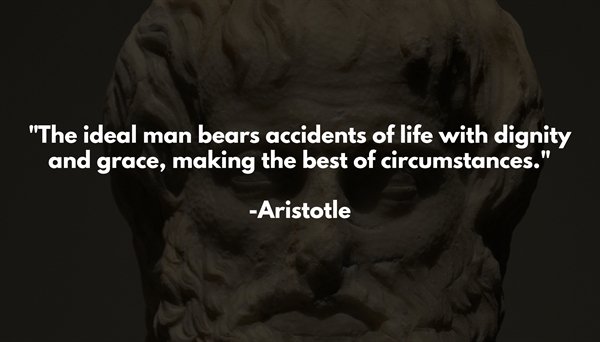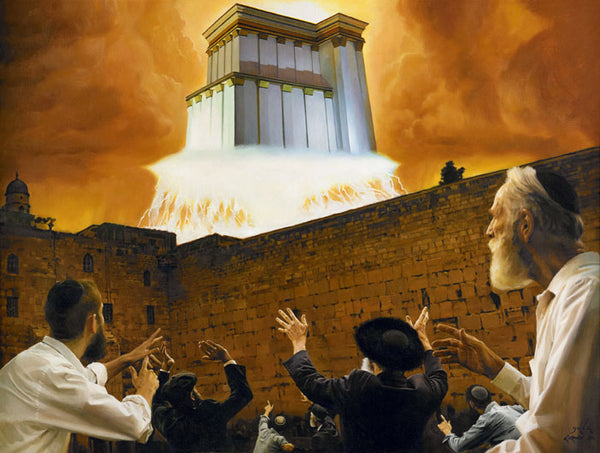Good things apparently come in tens. Yesterday we had the עֲשָׂרָה תְּנָאִין of יְהוֹשֻׁעַ, and now we pick up on דף פ״ב עמוּד ב with the עֲשָׂרָה תַּקָּנוֹת of עֶזְרָא:

שֶׁקּוֹרִין בַּמִּנְחָה בַּשַּׁבָּת; וְקוֹרִין בְּשֵׁנִי וּבַחֲמִישִׁי; וְדָנִין בְּשֵׁנִי וּבַחֲמִישִׁי; וּמְכַבְּסִים בַּחֲמִישִׁי בַּשַּׁבָּת; וְאוֹכְלִין שׁוּם בְּעֶרֶב שַׁבָּת; וְשֶׁתְּהֵא אִשָּׁה מַשְׁכֶּמֶת וְאוֹפָה; וְשֶׁתְּהֵא אִשָּׁה חוֹגֶרֶת בְּסִינָר; וְשֶׁתְּהֵא אִשָּׁה חוֹפֶפֶת וְטוֹבֶלֶת; וְשֶׁיְּהוּ רוֹכְלִין מַחֲזִירִין בָּעֲיָירוֹת; וְתִיקֵּן טְבִילָה לְבַעֲלֵי קְרָיִין
- That communities read the Torah on שַׁבָּת in the afternoon at מִּנְחָה.
- That they also read the Torah on every Monday and Thursday during שַׁחַרִית.
- That the courts convene and judge every Monday and Thursday.
- That one does laundry on Thursday in preparation for שַׁבָּת.
- That one eats garlic on עֶרֶב שַׁבָּת to increase fertility.
- That women should bake bread early in the morning on the days they wish to bake..
- That a woman should wear a breechcloth (undergarment).
- That a woman should first comb her hair and only then immerse in a mikveh after being ritually impure.
- That peddlers should circulate throughout the towns selling cosmetics, so that they would be readily available for purchase.
- That immersion is required in a mikveh before studying Torah for those who experienced a seminal emission.
The Gemara now spells out each one:
- שֶׁיְּהוּ קוֹרְאִין בַּמִּנְחָה בַּשַּׁבָּת – מִשּׁוּם יוֹשְׁבֵי קְרָנוֹת: That communities shall read the Torah on Shabbat afternoon. This ordinance was instituted due to those who sit idly on street corners, who do not go to shul during the week (as Rashi notes: יושבי חניות כל ימות החול עוסקין בסחורה ואין קורין בשני ובחמישי תקון בגינייהו קריאה יתירה).
- וְשֶׁיְּהוּ קוֹרְאִין בְּשֵׁנִי וּבַחֲמִישִׁי – עֶזְרָא תִּיקֵּן?! וְהָא מֵעִיקָּרָא הֲוָה מִיתַּקְנָא! דְּתַנְיָא: ״וַיֵּלְכוּ שְׁלֹשֶׁת יָמִים בַּמִּדְבָּר וְלֹא מָצְאוּ מָיִם״ – דּוֹרְשֵׁי רְשׁוּמוֹת אָמְרוּ: אֵין מַיִם אֶלָּא תּוֹרָה, שֶׁנֶּאֱמַר: ״הוֹי כל צָמֵא לְכוּ לַמַּיִם״: That they should read the Torah on every Monday and Thursday. The Gemara asks: Did עֶזְרָא institute this practice? But it was instituted long before his time. As it is taught in a baraisa with regard to the pasuk: “And Moses led Israel onward from the Red Sea, and they went out into the wilderness of Shur; and they went three days in the wilderness, and found no water” (וַיַּסַּ֨ע מֹשֶׁ֤ה אֶת־יִשְׂרָאֵל֙ מִיַּם־ס֔וּף וַיֵּצְא֖וּ אֶל־מִדְבַּר־שׁ֑וּר וַיֵּלְכ֧וּ שְׁלֹֽשֶׁת־יָמִ֛ים בַּמִּדְבָּ֖ר וְלֹא־מָ֥צְאוּ מָֽיִם – Shemos 15:22). Those who interpret פְּסוּקִים metaphorically said that water here is referring to nothing other than Torah, as it is stated concerning those who desire wisdom: “Ho, everyone who thirsts, come for water” (ה֤וֹי כל־צָמֵא֙ לְכ֣וּ לַמַּ֔יִם וַאֲשֶׁ֥ר אֵֽין־ל֖וֹ כָּ֑סֶף לְכ֤וּ שִׁבְרוּ֙ וֶאֱכֹ֔לוּ וּלְכ֣וּ שִׁבְר֗וּ בְּלוֹא־כֶ֛סֶף וּבְל֥וֹא מְחִ֖יר יַ֥יִן וְחָלָֽב – Yeshaya 55:1). Zooming ahead …
- וְדָנִין בְּשֵׁנִי וּבַחֲמִישִׁי – דִּשְׁכִיחִי, דְּאָתוּ לְמִקְרֵא בְּסִיפְרָא: And the courts convene and judge every Monday and Thursday. The Gemara explains that the reason for this ordinance is that many people are found in a city on these days, as they come from the countryside for the reading of the Torah, which is performed on Mondays and Thursdays, as stated above.
- וְשֶׁיְּהוּ מְכַבְּסִין בַּחֲמִישִׁי בַּשַּׁבָּת – מִשּׁוּם כְּבוֹד שַׁבָּת: That one should do laundry on Thursday. This was instituted due to the need to have clean garments לְכָּבוֹד שַׁבָּת.
- וְשֶׁיְּהוּ אוֹכְלִין שׁוּם בְּעֶרֶב שַׁבָּת – מִשּׁוּם עוֹנָה; דִּכְתִיב: ״אֲשֶׁר פִּרְיוֹ יִתֵּן בְּעִתּוֹ״, וְאָמַר רַבִּי יְהוּדָה, וְאִיתֵּימָא רַב נַחְמָן, וְאִיתֵּימָא רַב כָּהֲנָא, וְאִיתֵּימָא רַבִּי יוֹחָנָן: זֶה הַמְשַׁמֵּשׁ מִטָּתוֹ מֵעֶרֶב שַׁבָּת לְעֶרֶב שַׁבָּת: That one should eat garlic Shabbat eve. This is due to the fact that garlic enhances sexual potency, and Friday night is an appropriate time for conjugal relations. As it is written concerning the righteous: “And he shall be like a tree planted by streams of water, who brings forth his fruit in his season” (וְֽהָיָ֗ה כְּעֵץ֮ שָׁתוּל עַֽל־פַּלְגֵ֫י־מָ֥יִם אֲשֶׁ֤ר פִּרְי֨וֹ ׀ יִתֵּ֬ן בְּעִתּ֗וֹ וְעָלֵ֥הוּ לֹֽא־יִבּ֑וֹל וְכֹ֖ל אֲשֶׁר־יַעֲשֶׂ֣ה יַצְלִֽיחַ – Tehilim 1:3). You can read more about the potential benefits of garlic on sex drive here.

Garlic is a hot topic, as the Gemara adds:
תָּנוּ רַבָּנַן, חֲמִשָּׁה דְּבָרִים נֶאֶמְרוּ בַּשּׁוּם: מַשְׂבִּיעַ, וּמַשְׁחִין, וּמַצְהִיל פָּנִים, וּמַרְבֶּה הַזֶּרַע, וְהוֹרֵג כִּנִּים שֶׁבִּבְנֵי מֵעַיִים. וְיֵשׁ אוֹמְרִים: מַכְנִיס אַהֲבָה וּמוֹצִיא אֶת הַקִּנְאָה.
Five matters were stated with regard to garlic: It satiates; it warms the body; it causes one’s countenance to shine; it increases one’s sperm, and it kills parasties that are in the intestines. And some say that it also instills love into those who eat it and removes jealousy from them. You may also want to check out information from The Cleveland Clinic about the medicinal benefits of garlic.
Continuing on with #6 on Ezra’s list:
- וְשֶׁתְּהֵא אִשָּׁה מַשְׁכֶּמֶת וְאוֹפָה – כְּדֵי שֶׁתְּהֵא פַּת מְצוּיָה לַעֲנִיִּים: That a woman should rise early and bake bread on those days when she bakes. This Gemara explains that this was instituted so that bread should be available for poor people, who go begging for bread in the mornings.
- וְשֶׁתְּהֵא אִשָּׁה חוֹגֶרֶת בְּסִינָר – מִשּׁוּם צְנִיעוּתָא: That a woman should don a “סִינָר”. Steinsaltz notes the uncertainty about the origin of this term, but its derivation appears to be from the Greek “zonarion” [ζωνάριον which was some sort of undergament, perhaps even a chastity belt]. This ordinance was instituted due to reasons of modesty (as Rashi notes: להתרחק מן העבירה).
- וְשֶׁתְּהֵא אִשָּׁה חוֹפֶפֶת וְטוֹבֶלֶת – דְּאוֹרָיְיתָא הִיא: That a woman should first comb her hair and only then immerse in a mikveh. This is to ensure that there is no dirt or other substance in the hair that would invalidate the טְבִילָה. The Gemara questions this: This is required by Torah law, Ezra did not institute this.
- וְשֶׁיְּהוּ רוֹכְלִין מְחַזְּרִין בָּעֲיָירוֹת – מִשּׁוּם תַּכְשִׁיטֵי נָשִׁים, כְּדֵי שֶׁלֹּא יִתְגַּנּוּ עַל בַּעֲלֵיהֶם: The ninth of Ezra’s ordinances is that peddlers should circulate through all the towns. This Gemara explains that this is because peddlers supply women’s cosmetics, and therefore Ezra instituted this practice so that women should not become unattractive to their husbands. The Meiri interestingly adds that the ordinance was added because the local merchants tended to view these traveling salemsen as unwanted outside competition. Also bear in mind that they didn’t have the best of reputations.
- וְתִיקֵּן טְבִילָה לְבַעֲלֵי קְרָיִין – דְּאוֹרָיְיתָא הוּא! דִּכְתִיב: ״וְאִישׁ כִּי תֵצֵא מִמֶּנּוּ שִׁכְבַת זָרַע, וְרָחַץ אֶת בְּשָׂרוֹ בַּמַּיִם״! דְּאוֹרָיְיתָא הוּא לִתְרוּמָה וְקָדָשִׁים; אֲתָא הוּא, תִּיקֵּן אֲפִילּוּ לְדִבְרֵי תוֹרָה: The last of Ezra’s ten ordinnces was the requirement of טְבִילָה for those who experienced a seminal emission. The Gemara asks: But this is required by Torah law, as it is written: “And if the flow of seed go out from a man, then he shall bathe all his flesh in water” (וְאִ֕ישׁ כִּֽי־תֵצֵ֥א מִמֶּ֖נּוּ שִׁכְבַת־זָ֑רַע וְרָחַ֥ץ בַּמַּ֛יִם אֶת־כל־בְּשָׂר֖וֹ וְטָמֵ֥א עַד־הָעָֽרֶב – Vayikra 15:16). The Gemara answers: By Torah law immersion is required only if one wishes to partake of teruma or sacrificial meat. Ezra came and further instituted that טְבִילָה is necessary even for reciting or studying matters of Torah. Rabbi Stern noted that the Gemara in Brachos says thus was so that a husband shouldn’t be around his wife “like a rooster in a henhouse” (see below). In other words, having to go to the mikveh after each seminal emission was a deterrent to frequent ejaculation, which kept the husband more, shall we say, desirous of his wife.
Rabbi Stern then imported further insights on this from the sefer אוֹר שָׂמֵחַ (written by Rav Meir Simcha of Dvinsk). The following is from his commentary on the Rambam’s Mishneh Torah, 4:8 [הִללְכוֹת אִיסוּרֵי בִּיאָה]:

והנה שיטת רבינו בהלכות מקואות דהשער מצטרף אל הגוף ואעפ”י שכל שער ראשו קשור כיון שהוא מיעוט הגוף אינו חוצץ יעו”ש שחולק על הגאונים בפ”ב. ולכאורה גמרא ערוכה דפרק מרובה סותר, דעל עזרא שתיקן חפיפה פריך הא דאורייתא הוא כו’ ומאי נינהו שער אמרי דאורייתא דילמא מיקטר כו’ משום חציצה ומקטר אינו אלא בראש, הרי דזה דאורייתא. אמנם זה ל”ק כל כך, דאפשר אם הגוף מאוס ויש עליו מידי דחציצה והשער מיקטר אז מצטרף להגוף, ועוד דהמעיין יראה דלא חשבה הגמרא בהנך דעזרא מידי דהוי סייג אל התורה, רק תקנות שהמה מועילים אל קיום האומה ולחיי המשפחה שיהיו מקושרין לנשיהם ולא יגרשו אותם אשר ע”ז צווח הנביא מלאכי אשר הוא עזרא לרב נחמן במגילה, ולכן תקן רוכלים וחפיפה שמא ימצא בה נימא קשורה וכמו שדרשו על ותזנה עליו פלגשו ועל תמר בפ”ב דסנהדרין, ותיקן שיהיו מכבסין ואוכלין שום, וגם טבילה לבעלי קריין שלא יהיו מצויין אצל נשיהן כתרנגולים ותהא אשתו חביבה עליו, ולכן פריך הגמרא דאורייתא נינהו משום דין חציצה והוי סייג לדאורייתא ג”כ קרי בכ”מ דאורייתא (נ”ב. ובמובן כזה ממש כתב רבינו אשר סוף פרק המדיר סימן כ’ דהגמ’ קרי דרבנן להנך דמשום טובת האשה לא לשניות דהוי משום סייג). וזה ענין דתי דתקנתו היה לקשט האומה כדי שיוציאו הנשים הנכריות אשר ע”ז נצטער הרבה הוא וזקני דורו, ומשני דמצד חציצה הוי לעייני אבל לסרוק במסרק הוי ליפות ולקשט נשי ישראל ולקשר לבב בעליהן להן לתועלת קיום האומה, וז”ב אצלי בשיטת רבינו ז”ל ודוק
The gist of this is that the purpose of Ezra’s תַּקָנוֹת was to perpetuate the solvency of Klal Yisrael through the public reading of Torah on Monday and Thursday, and to strengthen the attachment of men to their wives though physical enhancements to deter divorce. Some of this was related to the attraction of Jewish men to נָשִׁים הַנָכְרִיוֹת (also known as The Shiksa Syndrome).
The Gemara continues with ten halachos pertaining יְרוּשָׁלַיִם
- אֵין הַבַּיִת חָלוּט בָּה
- וְאֵינָהּ מְבִיאָה עֶגְלָה עֲרוּפָה
- וְאֵינָהּ נַעֲשֵׂית עִיר הַנִּדַּחַת
- וְאֵינָהּ מִטַּמְּאָה בִּנְגָעִים
- וְאֵין מוֹצִיאִין בָּהּ זִיזִין וּגְזוּזְטְרָאוֹת
- וְאֵין עוֹשִׂין בָּהּ אַשְׁפַּתּוֹת
- וְאֵין עוֹשִׂין בָּהּ כִּבְשׁוֹנוֹת
- וְאֵין עוֹשִׂין בָּהּ גַּנּוֹת וּפַרְדֵּסוֹת – חוּץ מִגַּנּוֹת וְורָדִין שֶׁהָיוּ מִימוֹת נְבִיאִים הָרִאשׁוֹנִים
- וְאֵין מְגַדְּלִים בָּהּ תַּרְנְגוֹלִין
- וְאֵין מְלִינִין בָּהּ אֶת הַמֵּת
The Gemara elaborates:
- does not become irredeemable one year after its sale. Those who sell houses in other walled cities have the right to buy back their property for one year after the transaction. If they fail to do so, the house becomes the permanent possession of the buyer (see Vayikra 25:29–30). This halacha does not apply to houses in יְרוּשָׁלַיִם.
- And its Elders do not bring an עֶגְלָה עֲרוּפָה as required when a murder victim is found near a city and the murderer is unknown (see Devarim 21:1–9); and it cannot become an idolatrous city (see Devarim 13:13–19).
- And it cannot become an עִיר הַנִּדַּחַת. The reason is that it is written “If you shall hear tell concerning one of your cities, which the Lord your God gives you to dwell there” (כִּֽי־תִשְׁמַ֞ע בְּאַחַ֣ת עָרֶ֗יךָ אֲשֶׁר֩ יְהֹוָ֨ה אֱלֹהֶ֜יךָ נֹתֵ֥ן לְךָ֛ לָשֶׁ֥בֶת שָׁ֖ם לֵאמֹֽר – Devarim 13:13). And the tanna who taught this baraisa maintains that יְרוּשָׁלַיִם was not apportioned to any one of the tribes of Israel. It is therefore not included in the description “בְּאַחַ֣ת עָרֶ֗יךָ אֲשֶׁר֩ יְהֹוָ֨ה אֱלֹהֶ֜יךָ נֹתֵ֥ן לְךָ֛ לָשֶׁ֥בֶת שָׁ֖ם.”
- And a house in יְרוּשָׁלַיִם does not become מִטַּמְּאָה בִּנְגָעִים (with the impurity of leprous sores). The reason is that it is written: “And I put the plague of leprosy in a house of the land of your possession” (כִּ֤י תָבֹ֙אוּ֙ אֶל־אֶ֣רֶץ כְּנַ֔עַן אֲשֶׁ֥ר אֲנִ֛י נֹתֵ֥ן לָכֶ֖ם לַאֲחֻזָּ֑ה וְנָתַתִּי֙ נֶ֣גַע צָרַ֔עַת בְּבֵ֖ית אֶ֥רֶץ אֲחֻזַּתְכֶֽם – Vayikra 14:34). And the tanna who taught this baraisa maintains that Jerusalem was not apportioned to any one of the tribes of Israel. It is there-fore not included in the description “בְּבֵ֖ית אֶ֥רֶץ אֲחֻזַּתְכֶֽם.”
- And one may not build out projections or balconies [ זִיזִין וּגְזוּזְטְרָאוֹת] from houses that are in יְרוּשָׁלַיִם. The Gemara provides two reasons for this prohibition. First, the danger of contracting טוּמְאָה by being under the same roof, in which case the טוּמְאָה spreads to all items under the roof. If even a small part of a corpse is under a balcony, everyone who passes under that balcony is rendered טָמֵא. Many people come to יְרוּשָׁלַיִם to give קָרְבָּנוֹת, and they must maintain a state of טַהַרָה. The other reason is so that those great crowds of pilgrims not be injured by colliding with the projections.
- And one may not establish garbage dumps [אַשְׁפַּתּוֹת] in it. The Gemara explains that the reason is due to the repugnant creatures [שְׁקָצִים] that are attracted to such heaps and impart טוּמְאָה upon their death.
- And one may not build kilns [כִּבְשׁוֹנוֹת] in יְרוּשָׁלַיִם. The reason is due to the unsightly smoke produced by kilns. The Sages sought to preserve the beauty of יְרוּשָׁלַיִם and the בֵּית הַמִקְדָשׁ.
- And one may not plant gardens and orchards [גַּנּוֹת וּפַרְדֵּסִין] in it. This is due to the odor [סִירְחָא] emitted by these places, either from discarded weeds or from fertilizer. As Rashi notes: שבים רעים הגדילים שם וזורקין בחוץ ועוד דרך גנות לזבלן ויש סרחון
- And one may not raise chickens in יְרוּשָׁלַיִם. The Gemara explains that this is due to the sacrificial meat that is consumed in יְרוּשָׁלַיִם. Since chickens peck in the garbage, they are likely to pick up items that impart ritual impurity and bring them into contact with the consecrated food, which may not be eaten in an impure state. As Rashi notes: שתרנגולין מנקרין באשפה ומביאים בשר שרצים בפיהם ומטמאין את הקדשים
- And the last halacha: And one may not leave a מֵּת overnight in it. The Gemara notes that this prohibition is a tradition; there is no known explanation for it (as Rashi notes: מסורת היא בידינו ואין טעם לדבר). Rabbi Stern noted that there are very מַקְפִּיד in יְרוּשָׁלַיִם to bury a מֵת on the same day, and not to let the body linger overnight.
We finish today’s Daf with a rather cryptic passage:
הָיָה שָׁם זָקֵן אֶחָד שֶׁהָיָה מַכִּיר בְּחכְמַת יְווֹנִית, אָמַר לָהֶם: כל זְמַן שֶׁעוֹסְקִין בָּעֲבוֹדָה – אֵין נִמְסָרִים בְּיֶדְכֶם. לְמָחָר שִׁילְשְׁלוּ דִּינָרִין בְּקוּפָּה, וְהֶעֱלוּ לָהֶם חֲזִיר. כֵּיוָן שֶׁהִגִּיעַ לַחֲצִי הַחוֹמָה, נָעַץ צִפרְנָיו בַּחוֹמָה, וְנִזְדַּעְזְעָה אֶרֶץ יִשְׂרָאֵל אַרְבַּע מֵאוֹת פַּרְסָה עַל אַרְבַּע מֵאוֹת פַּרְסָה
There was a certain elder there who was familiar with Greek wisdom, and he said to those besieging יְרוּשָׁלַיִם: As long as they occupy themselves with the service in the בֵּית הַמִקְדָשׁ, they will not be delivered into your hands. The next day they lowered down money in a box as usual, but this time they sent up to them a pig. When the pig reached to the midpoint of the Temple wall it stuck its hooves into the wall, and אֶרֶץ יִשְׂרָאֵל quaked over an area of four hundred parasangs by four hundred parasangs.
בְּאוֹתָהּ שָׁעָה אָמְרוּ: אָרוּר הָאִישׁ שֶׁיְּגַדֵּל חֲזִירִים, וְאָרוּר הָאָדָם שֶׁיְּלַמֵּד אֶת בְּנוֹ חכְמַת יְווֹנִית. וְעַל אוֹתָהּ שָׁעָה שָׁנִינוּ: מַעֲשֶׂה שֶׁבָּא עוֹמֶר מִגַּנּוֹת הַצְּרִיפִין, וּשְׁתֵּי הַלֶּחֶם מִבִּקְעַת עֵין סוֹכֵר
At that time the חַכָמִים said: Cursed be the man who raises pigs, and cursed be the man who teaches his son Greek wisdom. And it was concerning that time of siege that we learned in a mishna: There was an incident in which the barley for the omer offering came from the gardens of Tzerifin, far from יְרוּשָׁלַיִם, and the wheat for the two loaves of Shavuos was brought from the valley of עֵין סוֹכֵר. Barley and wheat could not be brought from any nearer because the besiegers had destroyed all the produce around יְרוּשָׁלַיִם.

It seems as if ancient Greek philosophers had much wisdom to offer, compatible with Jewish persepctives. So why the emphasis on distancing oneself from this?

In fact, that is where our Daf will pick up tomorrow, begging the question וְחכְמַת יְווֹנִית מִי אֲסִירָא – is it really forbidden to study Greek wisdom?
For a sneak preview, have a look at this shiur from Harav Aharon Lichtenstein on the Virtual Beis Hamikdash of Torat Har Etzion.


